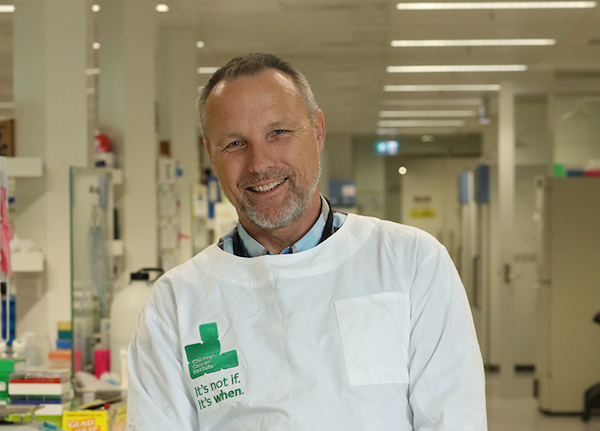One of the world’s most comprehensive personalised medicine studies in childhood cancer will draw together the expertise of all children’s cancer centres in Australia with local and international research institutes.
Over the next three years, the Zero Childhood Cancer program’s national clinical trial will enrol more than 400 children at the highest risk of treatment failure or relapse for both solid and haematological cancers.
The trial builds on a successful NSW pilot study in children with the most aggressive cancers whose chance of survival on standard treatments was less than 30%.

Prof Murray Norris
Professor Murray Norris, deputy director of the Children’s Cancer Institute which co-leads Zero Childhood Cancer, told the limbic the trial had the potential to deliver a new gold standard in care.
“What sets it apart from other studies being done both here and internationally is it is far more comprehensive.
“If you do whole genome sequencing on patients, not every patient will have a targetable mutation that you will be able to provide a drug for. This is certainly the case with children, because as a group they have fewer mutations present in their cancer genomes than adults with cancers such as melanoma or breast cancer.
“So we need to go beyond whole genome sequencing – for example undertaking in vitro testing of hundreds of clinically approved drugs to see which ones could be effective in that particular child’s cancer.”
“If this trial is successful… this would become the gold standard; this would be the way of treating children who would otherwise have a dismal outcome.”
He said childhood cancer could be classified as a rare disease given it represented less than 2% of the total cancer burden.
“We’re targeting specifically those children who are either very high risk at the time of diagnosis or who have relapse and a less than 30% chance of survival. This makes it an even smaller group so it is not possible, with subgroups of patients with disparate tumour types, to be able to do the equivalent of a phase 3 clinical trial.”
Outcome measures will include time from targeted treatment to relapse with a goal to extend survival further and improve quality of life.
The trial is sponsored by the Australian and New Zealand Children’s Haematology/Oncology Group (ANZCHOG).